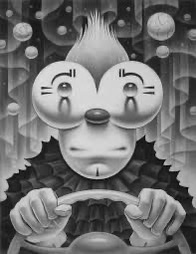Now, our Spirit Guides are a more personal matter. It would be as though an energy personality essence were “created” to the specifics of our individual personality being the Entity from which the specific characteristics are drawn. Now beyond the Energy Personality, of course, exist continuing manifestations of energy gestalts, more complex in form and substance, until one reaches All That Is, the fundamental energy source from which all realities in all dimensions are created.

Let me go a bit further there… using our wonderful little metaphor of the radio dial. Suppose that you think of All That Is as the totality of all radio waves. Then on your dial you would have listed those “channeled sources” as you have so described , in separate parts of the dial, so that each time you turn that dial, you connect to a different part of the energy “wavelengths” of All That Is.

Now let us say at the far left of the dial is the name David, and when you metaphorically turn the dial to that spot, you receive through your antennae, which we might describe as the Chakra receptors of the human body, the David transmission. And if you turn the dial to the right to the spot marked X you would “pick up” the transmission of that specific Energy Body and so on.

I think that our metaphor is a good one. Blog Readers can use this visualization to tune-in to their own guides and it becomes a ritual they can use to make these connections in their own lives. Ritualizing these activities – practicing making these connections – is what is going to help us in our Spiritual Evolution. It is the first step.

















































